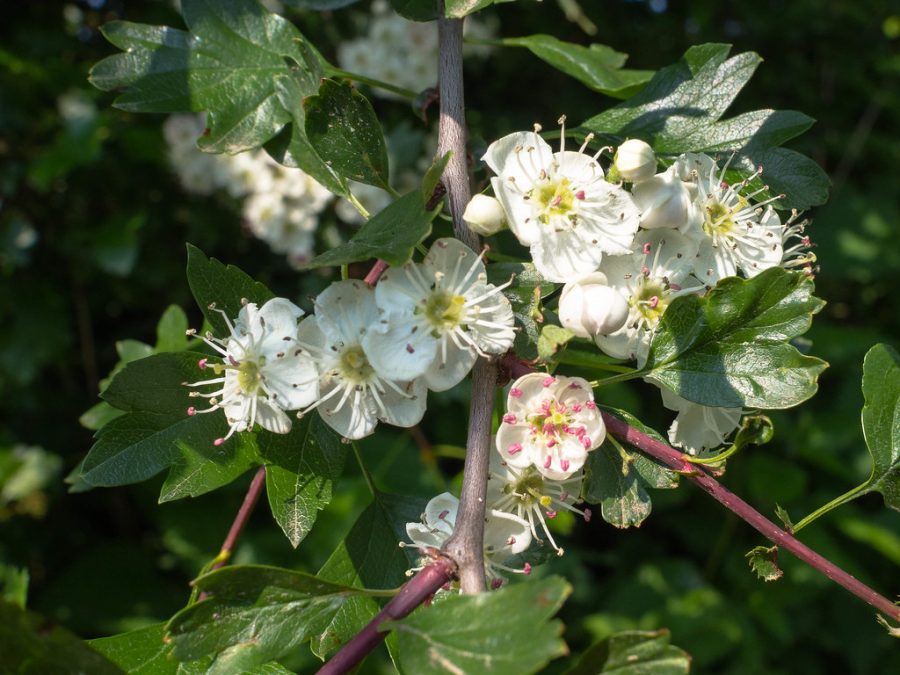Spring is in the Air
With the countdown to spring coming, everyone is out and about. The flowers are starting to bloom and the days are slowly growing hotter and sunnier. One of the most lovable features of spring is the presence of all of the animals and insects that spend the winters in hibernation. One of the most prominent species we see is bees. Though there appears to be many of them when you step outside, that’s really not the case. A recent study was done in 2017 about the bee population in the US. The total number of bees was presented to be 2.68 million, a drastic plummet from the 2016 census, and now scientists are trying to figure out ways to help and protect bees from being added to the list of endangered species. Bees are very important for the planet and are vital assets to the ecosystem. Not only do bees give us their delicious honey but they also help with pollination, a vital source needed to grow plants, flowers and food, which benefits humans. Though we may not pay much mind to them and even see them as a nuisance, they are in fact very important to humans and animals alike. Thankfully now, there have been various bills put in place to save them.
The bees are suffering through many challenges. One of the many is pesticides that have neonics. A variety of garden and yard care products containing neonics are currently available to the public — things like flower care fertilizers, grub control sprays and even flea collars for pets. Beekeepers say that neonics are more damaging to their colonies than other types of pesticides. A bee can come into contact with the pesticide during foraging even if the pesticide was not meant to get into contact with them. At times, aerial spraying of pesticides results in drifting due to the winds in the area. Persistent chemicals remain in the environment for long and can continue harming bees. Systemic insecticides are also problematic to bees since they can contaminate pollen grains that bees fed on. Sub-lethal amounts of the insecticides weaken bee populations gradually by impeding their navigation and foraging abilities.
Bees are additionally losing their habitats. With humans invading natural territories, the animals which inhabit them are forced out and lose their homes. The advice given to the people in this case is to rather than try to harm any bees they encounter, find a way to work with them instead. If that isn’t possible, the next step is to call a center that will take them in. With pollution also harming them, it is important to protect bees in any way that’s possible. Bees rely on scents to pollinate and safely make their way back to their beehive and the presence of pollutants in the air makes it difficult for them to find resources that are important for their survival. Light is another major pollutant that most people aren’t aware of. Bees use natural lights for navigation and to regulate their life rhythms, however, this planet has been riddled with excessive, unnatural light from human settlement and other activities. These lights can sometimes disorient bees and cause them to behave abnormally.
Climate change is also something that is harming not only bees, but plants too. Due to climate change, the planet is being affected in many different ways and bees don’t seem to be adapting the way they should. Some plants are dying out in regions that are affected by temperature changes. Warming up of some areas has made certain plants begin to colonize regions that are further south or north, where climatic conditions are more suitable. Bees would be best suited to migrate and follow these plants, but they are not able to do so quickly enough. This is making a very negative impact on their survival rate. On the bright side, there is legislation in New Jersey and various other states that protects native bees from pesticide exposure. The most recent bill passed in New Jersey requires people who spray pesticides to notify keepers of honeybees and native bees when they are applying pesticide within three miles of a registered beehive. It’s not much, but it’s something and we as a society need to abide by these rules to protect the species that roam the Earth. It is their home after all and they have just as much of a right as we do to live fulfilling lives.
My name is Arlette Figueroa and I am a writer for the Manville High School Paper. I am a freshman who loves to write stories and loves reading. I spend...











